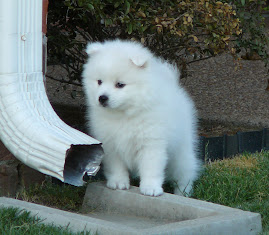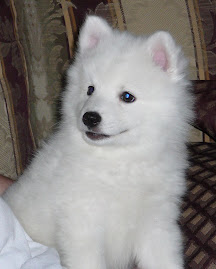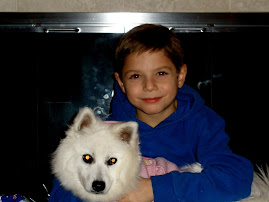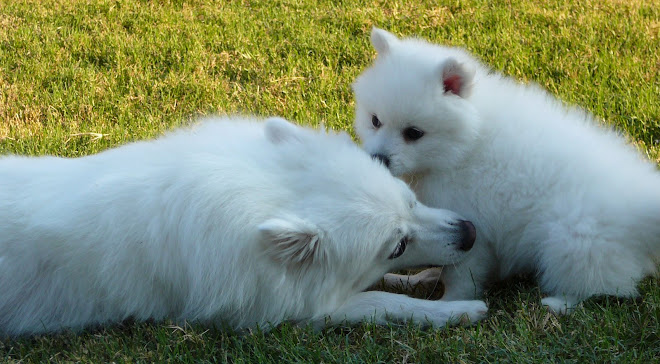July 9, 2011
Affectionate children might not think twice about giving their favorite canine a great big hug. But parents should use good judgment before allowing such an embrace. A toy breed could be injured by an overzealous hug, and a puppy or high-strung dog may act unpredictably or feel cornered by it. Some dogs interpret hugging as a sign of dominance.
"Socialization plays a big part as well. If the dog is raised with the child and is used to human hugs, then I see no problem," says Jordan Buccola-Bautista, a behaviorist with the Louisiana SPCA. "A parent should always show a child how to be gentle, not to hold the dog against their will, and if [the dog is] struggling to get out of the hug, definitely let go!" says Buccola-Bautista, adding that children should never approach a dog if they are a stranger to it.
Because not all dog cozy up to a hug, teach children to display their affection with more dog-approved methods, such as a back scratch, gentle pat, or playtime.
 The dog in this picture is clearly not enjoying himself. His eyes are wide and he is stiffly leaning away from the child. Additionally, the dog is "tongue flicking", which is a sign of stress. The parents of this child should not be letting her hug this dog.
The dog in this picture is clearly not enjoying himself. His eyes are wide and he is stiffly leaning away from the child. Additionally, the dog is "tongue flicking", which is a sign of stress. The parents of this child should not be letting her hug this dog.
* Above information taken from DogFancy magazine - March, 2011 issue.
Affectionate children might not think twice about giving their favorite canine a great big hug. But parents should use good judgment before allowing such an embrace. A toy breed could be injured by an overzealous hug, and a puppy or high-strung dog may act unpredictably or feel cornered by it. Some dogs interpret hugging as a sign of dominance.
"Socialization plays a big part as well. If the dog is raised with the child and is used to human hugs, then I see no problem," says Jordan Buccola-Bautista, a behaviorist with the Louisiana SPCA. "A parent should always show a child how to be gentle, not to hold the dog against their will, and if [the dog is] struggling to get out of the hug, definitely let go!" says Buccola-Bautista, adding that children should never approach a dog if they are a stranger to it.
Because not all dog cozy up to a hug, teach children to display their affection with more dog-approved methods, such as a back scratch, gentle pat, or playtime.
 The dog in this picture is clearly not enjoying himself. His eyes are wide and he is stiffly leaning away from the child. Additionally, the dog is "tongue flicking", which is a sign of stress. The parents of this child should not be letting her hug this dog.
The dog in this picture is clearly not enjoying himself. His eyes are wide and he is stiffly leaning away from the child. Additionally, the dog is "tongue flicking", which is a sign of stress. The parents of this child should not be letting her hug this dog.












